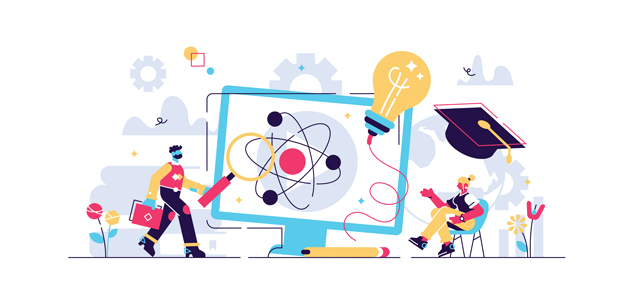
How Education Startups are Set to Disrupt the Industry
Educational institutions worldwide are leveraging technology provide to learners with better educational resources. Students are no longer dependent on a single teacher or instructor's knowledge to learn their subject. They have access to a world of information at their fingertips.
Advancements in technology have changed the way we teach and learn. Thanks to mobile devices and internet connectivity, knowledge sharing is no longer confined by geography. Just as every other sector, education too is witnessing a digital transformation. And the biggest drivers of this change are innovative education startups.
Famously known as EdTech startups, these education companies are making everyone rethink the working of a modern-day educational institution. With lower costs, EdTech solutions offer online learning services that provide similar knowledge at a fraction of the price compared to traditional education models.
Here are the reasons that reveal why EdTech startups are all set to disrupt the education industry:
-
Informed Decision Making with Data-Driven Insights
Integrating technology into education allows management to collect critical data about their operations. This data offers an overview of different patterns of education and the results they yield, administrative inefficiencies, learning needs of students and much more. The insights derived from such data can help educational institutions make informed decisions to improve the learning experience for their students.
-
Personalised Education For All
Personalising the educational experience is almost impossible in a diverse classroom environment. Teachers also devote time to administrative work such as grading tests, managing classroom attendance, and setting tests. Technologies such as exam management system can help teachers establish stronger individual relationships with their students by taking over mundane tasks. Teachers can also employ tools that help them personalise the learning experience for every student in their class.
-
AI-Powered Learning
The average teacher-student ratio around the world is 23 to 1. Therefore, most educational institutions struggle to provide personalised learning for every student. Artificial Intelligence may hold the answer to this problem. AI-guided learning tools understand a student's learning pattern and track their progress. AI can help students learn at their own pace by spending lesser time on topics they know and more on the topics they need help with. AI learning aids also use the competency-based approach to ensure that students understand how to apply the concepts they learn in real life.
-
Increasing Demand for Interactive & Immersive Education
EdTech companies use interactive educational devices and online platforms that engage students on a whole new level. Using virtual reality, students can immerse themselves in the learning experience. When struggling to relate to concepts such as the Syrian conflict, or the destruction caused by the First World War, virtual reality can bring the scene to life in front of students' eyes to help them understand the gravity. IoT technology can be instrumental in making learning more engaging for students and assist educators in creating better learning experiences for students.
-
Fundamental Changes Brought About by EdTech Innovation
Needless to say that EdTech has used emerging technologies such as artificial intelligence and machine for innovation in education. As learners continue to interact with digital devices and IoT devices such as Alexa and Siri, it helps collect vital data about their learning patterns. Analysing such data will help us personalise education and create better learning experiences for all.
-
Automation
Automation has helped various industries create more efficient and cost-effective operational solutions. The education industry is no different. Technologies such as admission automation have been around for quite some time. But now, even tasks such as grading online assessments, attendance through face recognition, and analysing student interaction with technology can be made easier with automation.
EdTech Startups are focused on creating smart learning solutions that offer a wholesome learning experience to students and make a teacher's job easier. Innovative solutions such as academic management systems transform school operations and make it easier to run day-to-day working in a school.

